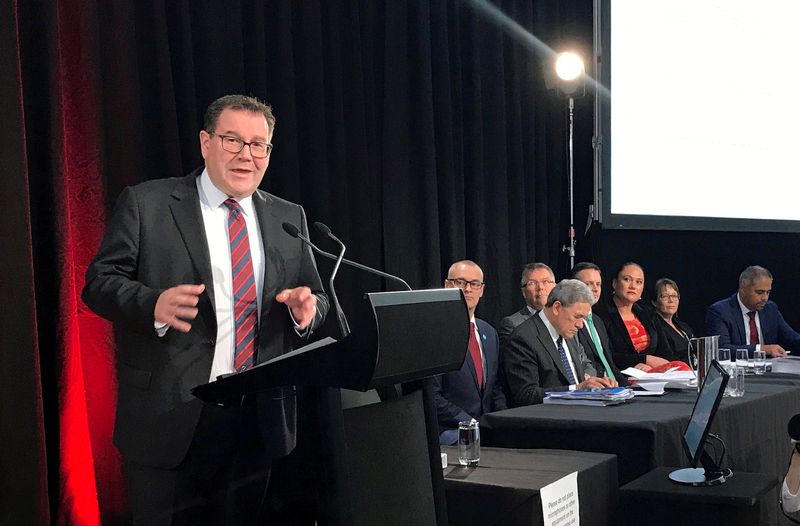By Lucy Craymer
WELLINGTON (Reuters) - New Zealand is set to deliver what it calls a "no frills" budget on Thursday as falling tax revenues squeeze coffers and inflation risks cap cyclone reconstruction efforts, constraining stimulus as the Labour government faces an election this year.
Finance minister Grant Robertson has said the budget will focus on fiscal sustainability as they cut NZ$4 billion ($2.54 billion) in spending to fund programmes viewed as core and to rebuild infrastructure damaged in the floods and cyclones earlier this year.
"This budget has seen us make difficult trade-offs to keep to our balanced approach," Robertson said in a speech to the Wellington Chamber of Commerce last week. "It is focused on providing support for people today, while also building our nation for the future."
The budget is the first for Prime Minister Chris Hipkins, who replaced Jacinda Ardern when she stood down in January after five years at the helm.
New Zealanders will head to the polls in October in what is set to be a close run election with no party likely to win a majority.
The 2023-24 budget is expected to show a worsening bottom line with the country unlikely to hit surplus by 2024-25 as was forecast in December.
In December, the government forecast a deficit of NZ$3.36 billion in the year ended June 2023, with a surplus of NZ$1.66 billion expected in the year ended June 2025.
Government forecasts on Thursday are also likely to reflect the worsening domestic situation with the economy shrinking 0.6% in the fourth quarter of last year.
Money will be set aside to provide relief for those on social welfare while more than NZ$1 billion has already been earmarked for rebuilding after the cyclone.
The government has also promised NZ$748 million to boost defence staff pay and for equipment upgrades. Money for climate-friendly initiatives is also expected.
Bank of New Zealand economists said that although the budget will include some stimulus measures they are unlikely to be significant.
"Even if the government wanted to go larger with spending, and large on tax relief, the accounting boundaries would ring alarm bells," they said.
($1 = 1.5763 New Zealand dollars)
(This story has been refiled to correct wording in paragraph 1)
